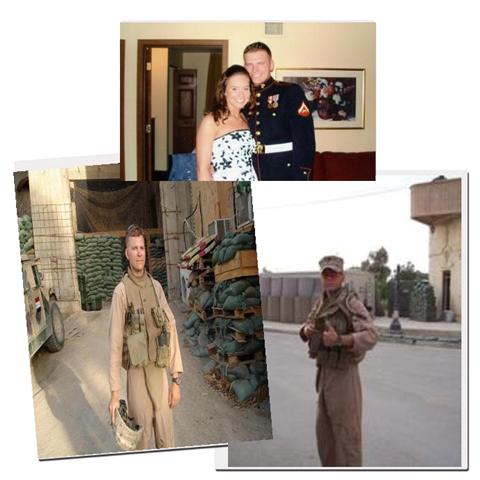By Pamela Hess
Feb 17, 2007
It's old fashioned. It's low-tech but it works. One U.S. unit operating in Iraq has found the best way to win hearts and minds is to put loudspeakers on police stations.
The speaker systems are erected over the police stations. The daily broadcasts are 10 to 15 minutes long. They are timed not to compete with the call to prayers, and the messages are written by the police and local political officials. Some of the speeches are copied onto CDs and distributed around town.
The broadcasts include Iraqi top 40 music; news dispatches taken from the BBC and Al Jazeera, speeches by the governor and the police chief, warnings about high threat areas, and the national anthem.
"That's a pretty catchy song," said Maj. Dan Zappa, the executive officer of the 1st Battalion, 6th Marine Regiment, responsible for security operations in some of the most contested areas of Ramadi. "It's interspersed with popular music. We've got video of kids dancing, hundreds of them, jumping around."
"We have the police chief in western Ramadi" Zappa said, "and he's addressing his family, his extended family and his tribe," said Maj. Tiley Nunnink, a guest staff member of the battalion sent by the Marine Corps Warfighting Lab in Virginia. "It's a vehicle for Iraqi policemen to say what they need to say to the people."
The loudspeaker program would be a gamble in a town without a legitimate local police presence. In that case it would just be the overbearing -- and clumsily worded -- symbol of the occupation trying to co-opt local religious customs, senior commanders said.
But they believe the loudspeaker broadcasts are part of what seems to be turning the population in Ramadi against the insurgency.
"The system's working because the local population is approaching the Iraqi police with valuable information to help put down criminal acts - roadside bombs, building IEDs, stuff like that," Zappa said.
"Those are definitely the metrics, how does the population respond to this?" Nunnink said. "You can hear it in the broadcast. The broadcast says thank you for providing this information. You're contributing to the further security of the city."
The loudspeaker initiative addresses a huge hole in U.S. warfighting capabilities in Iraq: Insurgents can turn around videos of successful attacks on U.S. convoys, or dead Iraqi soldiers, or doctored or misrepresented footage of events within hours, sometimes before those events have even been reported to American headquarters. The videos show up on racks of bootlegged DVDs and CDs that seem to be for sale on nearly every street corner almost instantaneously.
Analysis: Loudspeaker Diplomacy
Subscribe to:
Post Comments (Atom)






No comments:
Post a Comment